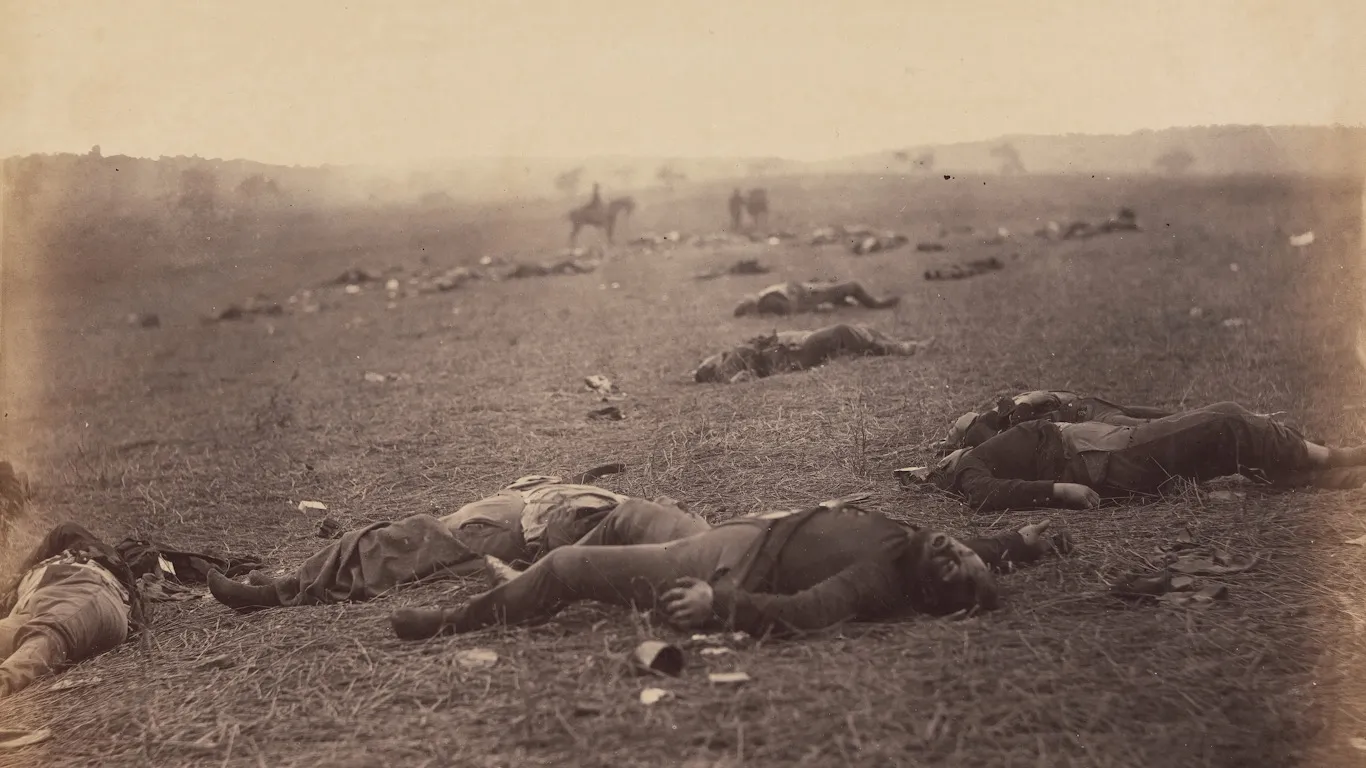Gettysburg, nestled in Adams County, Pennsylvania, boasts a picturesque charm that draws visitors from near and far. Situated roughly 80 miles northwest of Baltimore and 140 miles west of Philadelphia, this historic town offers a delightful blend of culinary delights and cultural experiences.
From farm-to-table eateries highlighting the region’s bountiful produce to quaint cafes dishing out freshly baked goodies, Gettysburg caters to every palate. Moreover, the town’s deep-rooted affection for apples is evident in its surrounding orchards, which come alive each fall during the Apple Harvest Festival, offering delectable pies, ciders, and apple-inspired treats.
While Gettysburg’s culinary and agricultural allure is undeniable, its true significance lies in its pivotal role during the American Civil War. The Battle of Gettysburg, fought from July 1 to July 3, 1863, stands as one of the most critical and intense engagements in American history.
Amidst the backdrop of a deeply divided nation, the battle unfolded during a tumultuous period of the Civil War. The Union, representing the Northern states, sought to abolish slavery and preserve the nation’s unity, while the Confederacy, comprising Southern states, fought to uphold slavery and assert state autonomy.
Led by General Robert E. Lee, the Confederate Army launched an audacious invasion of the North in the hopes of securing a decisive victory that could sway the course of the war. The clash ensued almost serendipitously when Confederate troops stumbled upon Union forces in Gettysburg, sparking a fierce and protracted conflict.
Over three days, the battle raged across the countryside, culminating in the infamous Pickett’s Charge on July 3. Despite valiant efforts, the Confederate assault proved futile, resulting in staggering casualties and ultimately signaling a turning point in the war.
The aftermath of Gettysburg reverberated far beyond the battlefield. With tens of thousands of lives lost or forever altered, the failure of the Confederate invasion galvanized Union resolve and emboldened President Abraham Lincoln to press on in the fight against slavery and secession.
Lincoln’s immortal Gettysburg Address, delivered at the dedication of the Soldiers’ National Cemetery just four months after the battle, crystallized the war’s purpose and reaffirmed the nation’s commitment to freedom and equality for all.
Today, the Gettysburg National Military Park stands as a testament to the sacrifices made and the valor displayed during those fateful days in July 1863. With its sprawling acres, poignant monuments, and immersive exhibits, the park serves as a poignant reminder of Gettysburg’s enduring significance in American history.

